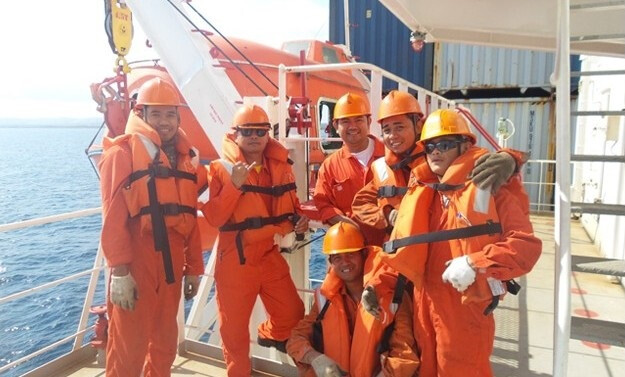
The Philippines' Maritime Industry Authority (MARINA) and the Philippine Coastal Shipping Association (PCSA) are moving to revise the minimum safe manning standards for domestically operating vessels. According to an announcement on Wednesday, July 9 (local time), this consultation aims to enhance maritime safety and address current issues in the shipping industry.
Minimum safe manning standards are essential for ensuring vessel operational safety and preventing maritime accidents. These standards prescribe the minimum number of crew members required, considering the type, size, navigation area, and operational characteristics of the vessel. This also encompasses the qualifications, training, and duties of each crew member.
For some time, concerns have been raised that the minimum crew standards for domestic vessels have not sufficiently reflected the rapidly changing maritime environment and technological advancements. Modern vessels have seen significant changes in their operation due to the introduction of automation systems and advancements in communication technology, thereby altering the roles and required competencies of crew members. Furthermore, the COVID-19 pandemic brought new challenges related to crew supply and deployment, which directly impacted safe operations. A consensus has formed that it is urgent to re-examine existing regulations and establish new standards that align with current realities in response to these changes.
MARINA, through two days of consultation with PCSA, deeply discussed the proposed amendments to the minimum safe manning rules for vessels operating in Philippine domestic waters. The key objectives of this meeting were to: ▲ adjust manning standards to current maritime practices, ▲ improve vessel safety, and ▲ address industry concerns related to training, deployment, and operational capabilities.
Ronaldo Bandalaria, MARINA's Chief of Staff, emphasized MARINA's collaborative and participatory approach to the proposed revisions, promising to discuss and review all concerns raised by PCSA. This demonstrates a commitment to listening to the industry's voice and collaboratively seeking optimal solutions, rather than unilaterally formulating regulations.
In response, Cesar Licudine, Interim Administrator of PCSA, expressed gratitude for MARINA's initiative and highlighted PCSA's shared goal of establishing safe and practical crew requirements tailored for domestic operations. This mutually cooperative stance from both parties suggests that the revision process will proceed smoothly.
This discussion saw active participation not only from MARINA and PCSA executives but also from representatives of major shipping companies, who contributed to the review of the draft. Various stakeholders came together to ensure that on-the-ground perspectives were sufficiently reflected.
The revision of the minimum safe manning standards is expected to bring several positive effects:
Enhanced Vessel Safety: By establishing crew deployment standards appropriate for modern operating environments, the risk of vessel accidents can be reduced, and maritime safety can be further solidified. This plays a crucial role in protecting the lives of crew and passengers and preventing marine environmental pollution.
Increased Operational Efficiency: Optimizing crew configurations to ensure safety while reducing unnecessary manpower waste can increase the operational efficiency of shipping companies.
Strengthened Industry Competitiveness: Harmonizing with international maritime safety standards can enhance the credibility of the Philippine domestic shipping industry and strengthen its competitiveness.
Improved Crew Competency: New standards may require more specialized training and qualification acquisition for crew members, which will lead to an overall improvement in the competency of Philippine maritime personnel.
However, challenges remain in this revision process. Sufficient grace periods and support measures must be put in place to ensure that the new standards can be smoothly applied on the ground. Additionally, the development and expansion of necessary crew education and training programs according to the revised regulations are essential. The government, shipping industry, and educational institutions must collaborate closely to address these challenges.
This revision discussion is an important step for the Philippine shipping industry as it moves towards the future. All eyes are on what fruits MARINA and PCSA's efforts to create a safe and efficient maritime environment in line with changing times will bear.
[Copyright (c) Global Economic Times. All Rights Reserved.]






























